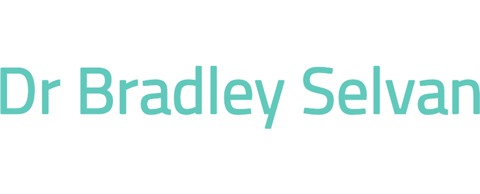
Prevention really is better than cure.
The cost of tooth decay isn't just a matter of money. Decay damages irreplaceable tooth structure, and though your dentist can help compensate for the damage, we all agree that the fewer fillings, root treatments and crowns we have to undergo, the better. In children, damaged teeth can also cause trouble eating, affect speech development and lower self-esteem.
As a parent, education is your best weapon in protecting your child’s teeth. Here's some information you should know:
For any answers, advice or treatment your child needs, contact Midrand Dental Excellence.
When should my child start seeing a dentist?
The American Academy of Pediatric Dentistry (AAPD) recommends that a child go to the dentist by age 1 or within six months after the first tooth erupts. Primary teeth typically begin growing in around 6 months of age. What's more, a study in the journal Pediatrics found that kids who saw a dentist before age 1 have lower dental costs in their first five years − a difference of up to 40%.
Baby bottle tooth decay
You might not be too worried about your child's baby teeth. They're going to fall out anyway, after all. But be warned: the permanent teeth are forming in the gums long before they actually emerge, and decay in the baby teeth can damage them. Baby teeth also play a role in ensuring permanent teeth come in correctly.
Early childhood caries, nicknamed baby bottle tooth decay, can be caused by sugary drinks. This includes drinks with a lot of natural sugars, like milk and formula. Avoid filling your baby's bottle with fruit juice or soft drinks, and don't dip pacifiers in sugar or honey. Only use water for bedtime bottles.
Early childhood caries, nicknamed baby bottle tooth decay, can be caused by sugary drinks. This includes drinks with a lot of natural sugars, like milk and formula. Avoid filling your baby's bottle with fruit juice or soft drinks, and don't dip pacifiers in sugar or honey. Only use water for bedtime bottles.
Passed on by parents?
Adult mouths contain colonies of bacteria that can cause tooth decay, and your saliva can transfer these to your child's mouth. Try not to lick your child's pacifiers, bottle nipples or cutlery like feeding spoons.
Fluoride: Yes or no?
Definitely yes − in small doses. Many parents are sceptical about giving their children fluoride, which in high doses can discolour and damage teeth. However, fluoride toothpaste is one of our best weapons against tooth decay. Don't use any more than a smear of toothpaste for children under three, and only a pea-sized amount up until age 6.
Avoid fluoride supplements like tablets or drops: research shows fluoride is most effective when rubbed on with the toothbrush
Avoid fluoride supplements like tablets or drops: research shows fluoride is most effective when rubbed on with the toothbrush
Brushing and cleaning
You can start using a soft tooth brush as soon as your child gets their first tooth. Until then, wash your infant's gums with a soft cloth after every meal. Clean your child's teeth twice a day − children who are used to this will find going to the dentist much less stressful.
Avoid aggressive brushing back and forth, which can damage teeth and gums. Instead, tilt the brush towards the gums and brush gently in small circles, touching every part of the tooth you can reach.
Children should brush their teeth at least twice a day. As soon as their permanent teeth begin growing in, they should also start flossing.
Avoid aggressive brushing back and forth, which can damage teeth and gums. Instead, tilt the brush towards the gums and brush gently in small circles, touching every part of the tooth you can reach.
Children should brush their teeth at least twice a day. As soon as their permanent teeth begin growing in, they should also start flossing.
Thumb sucking
Sucking is one of our first reflexes, and helps children feel secure and happy. However, prolonged thumb sucking can affect the development of the mouth, teeth, and roof of the mouth. The more vigorous the sucking (do you hear a pop when your child pulls their thumb out?) the higher the risk of damage.
Pacifiers are usually easier to give up than thumb sucking, and most children outgrow these habits by themselves between ages 2 and 4. If they don't, parents should discourage them from age 4, but being too harsh can do more harm than good. Praise your child for not sucking their thumb rather than scolding them for doing so. Be aware that for many children, thumb sucking is a comfort when they're feeling anxious. Try to remove the cause of the anxiety, and if that isn't possible, praise and reward the child for their bravery if they can get resist the urge.
If the problem persists, talk to your child's dentist.
Pacifiers are usually easier to give up than thumb sucking, and most children outgrow these habits by themselves between ages 2 and 4. If they don't, parents should discourage them from age 4, but being too harsh can do more harm than good. Praise your child for not sucking their thumb rather than scolding them for doing so. Be aware that for many children, thumb sucking is a comfort when they're feeling anxious. Try to remove the cause of the anxiety, and if that isn't possible, praise and reward the child for their bravery if they can get resist the urge.
If the problem persists, talk to your child's dentist.

